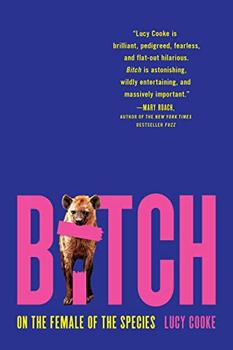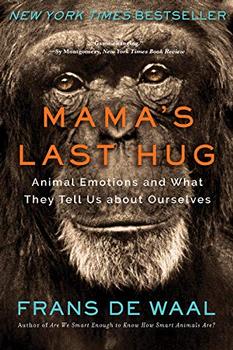Summary | Excerpt | Reading Guide | Reviews | Beyond the book | Read-Alikes | Genres & Themes | Author Bio

A Memoir of Love and Adventure in the Congo
by Vanessa WoodsBonobo Handshake is equal parts behavioral science, history, personal memoir, and coming-of-age tale. I usually consider it a mistake when an author tries to cram too much into a book, trying to be all things to all readers, as the end result is often a work that does a poor job covering all aspects of the chosen material. Vanessa Woods, however, manages to pull off this balancing act in a remarkably satisfying manner. One topic flows into the next naturally, almost conversationally, providing connection and continuity between diverse subjects. This allows her to cover a lot of ground without any one subject bogging down the narrative or becoming too dry. It does prevent her from going into a great deal of depth, particularly when covering African history, but she provides enough of an overview so that the reader understands the context in which her memoir takes place.
This is a story of personal growth as much as anything. The author relates her gradual maturing with refreshing honesty and self-deprecating humor. When we first meet her, Woods is twenty-two and fresh out of college, assisting at a chimpanzee refuge in Uganda. It's evident that she's there for the adventure, and she makes it plain that she continued traveling to foreign lands for the excitement and romance of doing something new and perhaps a little daring.
"I envisioned myself slicing through the foliage with my hair swept into a glossy ponytail and stylish smudges of dirt underneath my cheekbones. I would walk among forest elephants in the glittering sunlight. I would adorn myself with pythons and gain a reputation among the rebel warlords as some kind of goddess."
When she relates her engagement and marriage to behavioral researcher Brain Hare, she seems to have very little understanding of, or sympathy for, his goals. She comes to realize through the course of the book that her initial pursuits were somewhat shallow. "I always imagined doing something worthwhile with my life," she writes. "But I got adventure confused with substance. I thought if I went to amazing places and did interesting things, that would be enough. But that's just a spectator sport. Every time I got bored, I packed up and ran around until I found the next interesting thing. I never stuck around long enough to build anything meaningful." By the book's conclusion she has conducted her own research project and developed the sense of purpose she lacks in the early sections of the narrative.
I was struck by Woods's ability to keep me on an emotional roller-coaster from start to finish. It's rare that I'll laugh out loud or cry while reading a book, particularly a non-fiction one, but Bonobo Handshake elicited both reactions from me - more than once. I shed tears of both sorrow and joy throughout the story.
"Bonobo handshake" is a euphemism for sex, and readers should know that the author's frank style extends to her descriptions of bonobo sex acts and genitalia. Given the bonobo's similarities to humans, some readers may find these sections pretty graphic. In addition, one of the author's reasons for traveling to war-torn countries was to elicit war stories from the people she met in an attempt to understand her father's Vietnam War experiences. Their tales include detailed descriptions of dismemberment, cannibalism and rape, among other horrific things, and may haunt those of a sensitive nature.
Woods's ultimate purpose for writing about bonobos is plain: to direct more attention
(and thus conservation funds) to the preservation of these marvelous yet little-known
creatures. As she points out, "Bonobos are as closely related to humans as chimps
and are more in danger of extinction. But even at great ape conferences, bonobos
are completely left off the map. Of all the conservation money that pours in
to save chimpanzees, bonobos barely see a penny." She certainly succeeds in
portraying their plight, and does so without becoming strident or preachy. The
book is highly recommended for anyone interested in learning more about these
remarkable animals and for those who enjoy first-rate non-fiction.
Interesting Link
A short history of The Congo River and the two countries that border it, The Democratic Republic of the Congo and The Republic of the Congo, in the sidebar and additional information to Blood River.
![]() This review was originally published in The BookBrowse Review in August 2010, and has been updated for the
July 2011 edition.
Click here to go to this issue.
This review was originally published in The BookBrowse Review in August 2010, and has been updated for the
July 2011 edition.
Click here to go to this issue.

If you liked Bonobo Handshake, try these:

by Lucy Cooke
Published 2023
A fierce, funny, and revolutionary look at the queens of the animal kingdom.

by Frans de Waal
Published 2020
New York Times best-selling author and primatologist Frans de Waal explores the fascinating world of animal and human emotions.
Your guide toexceptional books
BookBrowse seeks out and recommends the best in contemporary fiction and nonfiction—books that not only engage and entertain but also deepen our understanding of ourselves and the world around us.